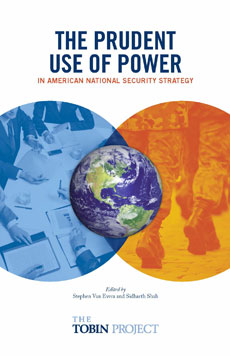The Prudent Use of Power in American National Security Strategy
| « Previous Book | Next Book » |
|
|
SummaryIn The Prudent Use of Power in American National Security Strategy, a compendium of ten essays originally presented at the Tobin Project’s December 2009 conference, leading scholars examine the utility of “nonkinetic” (or nonmilitary) power in U.S. national security policy. The authors consider the potential risks and benefits of shifting to a more prudent, or restrained, use of “kinetic” (or military) power in U.S. foreign policy. This scholarship aims to test the limits of kinetic and nonkinetic power in dealing with national security challenges and to explore how and where each can be used most effectively. This compendium brings together a set of scholars from a variety of disciplines, including Jeremi Suri (History, University of Wisconsin, Madison), Carolyne Davidson (History, Yale University), Stephen Van Evera (Political Science, MIT), Daniel Byman (Political Science, Georgetown University), and Deepak Malhotra (Management, Harvard Business School). Contents» Table of Contents PDF Part I: The American Experience with Diplomacy and Military Restraint PDF Part II: Nonkinetic Power and Contemporary National Security Challenges PDF Part III: Liquidating Military Commitments PDF Note: Historians Fredrik Logevall (Cornell University) and Kenneth Osgood (Florida Atlantic University) also contributed an essay to the Tobin Project’s 2009 national security conference. Their piece, "The Ghost of Munich: America’s Appeasement Complex," was published in the July/August 2010 issue of World Affairs. Read the article here. |


